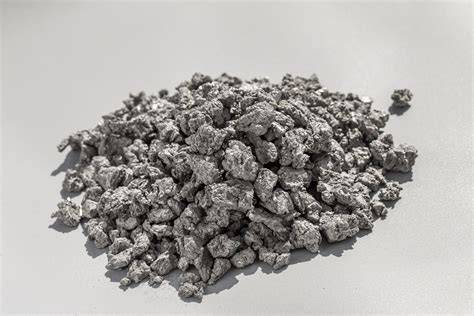

Soft Magnetic Powder represents a significant advancement in the field of materials science, especially within the realm of electromagnetic applications. Among the myriad of materials that contribute to technological advancements, soft magnetic powder stands out for its unique properties and wide range of applications. This article delves into the identification of soft magnetic powder, its key characteristics, and the diverse applications it finds across various industries.

Soft magnetic materials are key components in various applications across electronics, automotive, aerospace, and energy sectors, among others, due to their ability to be easily magnetized and demagnetized. Soft magnetic powders form the basis of many composite materials and components used in these fields. Below is a list of commonly used soft magnetic powders, categorized by their base material:
Pure Iron Powder: Offers high saturation magnetization and is used in cores for high-frequency applications.
Iron-Silicon Alloys (Electrical Steel): Silicon increases the electrical resistivity and reduces eddy current losses, making these alloys ideal for transformer cores.
Iron-Nickel Alloys (Permalloy): Known for their high permeability and low coercivity, used in applications requiring efficient magnetic field generation and sensing.
Sendust (Aluminum-Silicon-Iron Alloys): Characterized by low coercivity, high electrical resistance, and good frequency characteristics, making them suitable for inductor cores in power electronics.

Nickel-Iron Alloys (Mu-Metal): Extremely high magnetic permeability and used for shielding against magnetic fields.
Nickel-Zinc Ferrites: Utilized in high-frequency applications, including antennas and electromagnetic interference (EMI) suppression.
Cobalt-Iron Alloys: Offer high saturation magnetization and are used in applications requiring high magnetic performance under extreme conditions.
Amorphous and Nanocrystalline Alloys: These materials, often based on a combination of iron, nickel, cobalt, and other elements, exhibit high permeability and low losses at high frequencies.
Soft Ferrites (Manganese-Zinc and Nickel-Zinc): Characterized by their high electrical resistivity and permeability, these are widely used in transformer cores, inductors, and as EMI suppressors in electronic circuits.
Soft Magnetic Composites (SMCs): These are iron particles coated with an insulating layer, and compacted into shapes. They are used in electric motors and inductors, offering advantages in three-dimensional magnetic flux paths and reduced eddy current losses.
Soft magnetic powders are composed of ferromagnetic materials that are easily magnetized and demagnetized. Unlike their hard magnetic counterparts, which retain a significant amount of their magnetization over time, soft magnetic materials exhibit low coercivity, meaning they require a minimal amount of magnetic field to be magnetized or demagnetized.
These powders are typically made from iron or iron-based alloys, including silicon steel, nickel-iron, and ferrites. The particle size, shape, and composition of the powder can be tailored during the manufacturing process to meet specific application requirements, thereby optimizing performance in terms of magnetic saturation, permeability, and loss characteristics.
The primary characteristics that define soft magnetic powders include high magnetic permeability, low coercive force, and low hysteresis loss. These properties make them ideal for applications where rapid magnetization and demagnetization are crucial.
Soft magnetic powders play a critical role in the electronics and telecommunications industries. They are used in the cores of inductors, transformers, and other electromagnetic components to enhance efficiency and reduce energy losses. In high-frequency applications, such as in RF (radio frequency) and microwave devices, soft magnetic powders help minimize eddy current losses, thus improving the performance of antennas, filters, and shielding materials.
In electrical engineering, soft magnetic powders are used to improve the efficiency of electrical machines, such as motors and generators. The powders are often used in the cores of these machines to facilitate the efficient transfer of magnetic flux, thereby reducing energy consumption and improving performance. This application is particularly significant in the development of energy-efficient electric vehicles and renewable energy technologies.
Soft magnetic powders have found applications in data storage technologies, including magnetic tapes and hard disks. The powders are used in the magnetic layers of these storage devices to store data in the form of magnetic domains. The ability to quickly magnetize and demagnetize these materials enables high-density data storage and rapid data retrieval.
The properties of soft magnetic powders make them suitable for use in sensors and actuators. Magnetic sensors, for example, can utilize soft magnetic materials to detect changes in magnetic fields, which are then converted into electrical signals for various applications, including position sensing, speed detection, and current measurement. Actuators use these powders to convert electrical energy into mechanical motion, finding applications in precision control systems.
Soft magnetic powder is a material that bridges the gap between scientific innovation and practical applications in technology. Its unique magnetic properties enable the development of more efficient, reliable, and high-performance devices across a wide range of industries. As research and development in materials science continue to advance, the applications of soft magnetic powder are likely to expand, further embedding its significance in the technological landscape of the future.
Stanford Advanced Materials (SAM) is recognized for supplying high-quality materials across a broad spectrum of industries, including the provision of soft magnetic powders. Their commitment to serving both commercial and industrial clients with top-tier products is evident in their diverse catalog and the tailored solutions they offer. SAM's range of soft magnetic powders is particularly noteworthy for its variety, quality, and the advanced applications it supports.

United States
.png)



